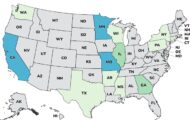On January 23, 2012, in the case National Meat Association v. Harris, the United States Supreme Court blocked a California law that required euthanizing “downer” livestock and prohibited the sale of those animals with criminal penalties. The decision was unanimous.
In 2009, California increased regulations for meat processing laws, banning the movement of these animals into the food supply. But the National Meat Association, representing pork producers, sued, saying that this new law overruled federal regulations. Animal rights groups supported the California law, but the Obama administration chose to side with the pork producers.
In fact, the California law mandated “humane treatment” of downed livestock. In 2008, an undercover video by the Humane Society showing downed animals being dragged and bulldozed into slaughter pens shocked Americans. That video triggered the new legislation.
According to the Federal Meat Inspection Act, an inspector can examine a downed animal and decide whether it can enter the food supply. The Act, in a 1967 clause, does stipulate that individual states can’t add requirements to the law even if they don’t conflict with it.
The National Meat Association says that 3% of pigs who reach slaughterhouses cannot walk, but the animals are given a few hours to see if they are suffering from a disease or if it’s just stress, overheating, or fatigue that is causing the problem. The Association also claims that euthanizing these animals immediately would hinder the diagnosis of food-and-mouth disease.
On January 12, Congressman Gary Ackerman (D-NY) reintroduced a bill to permanently prohibit all unhealthy livestock from the food supply. The Congressman has said that food from sick or diseased livestock should not be on America’s plate.
The president of the Humane Society, Wayne Pacelle, said, “This is a deeply troubling decision, preventing a wide range of actions by the states to protect animals and consumers from reckless practices by the meat industry… The fact is, Congress and the USDA have been in the grip of the agribusiness lobby for decades, and that’s why our federal animal handling and food safety laws are so anemic.”




